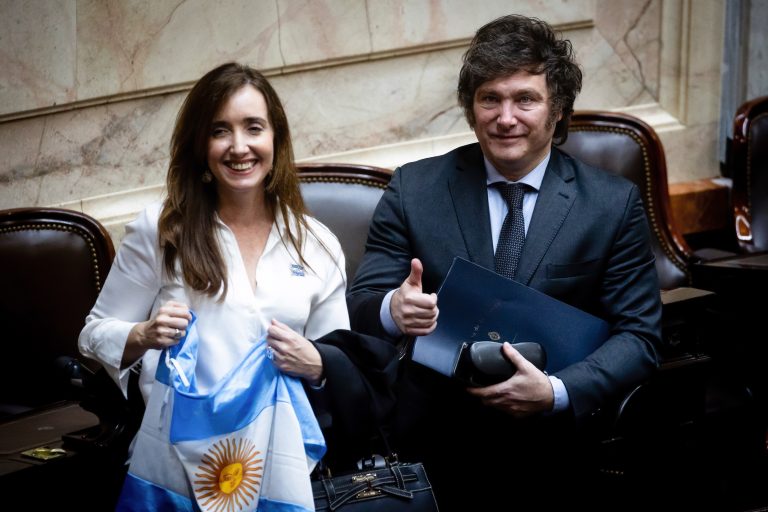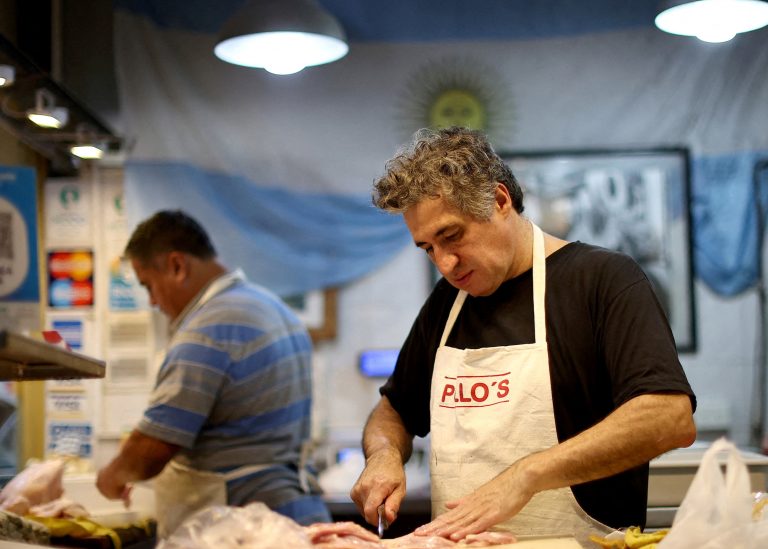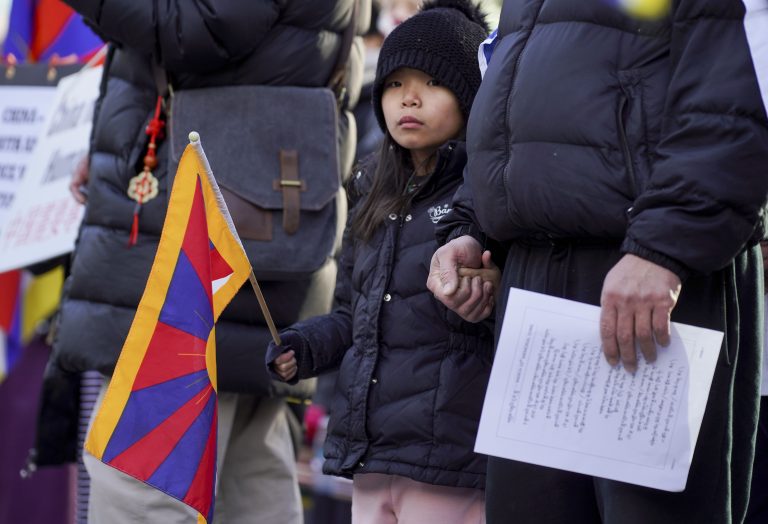News analysis
Recent attempts by Communist China to stay in Argentina’s good graces following the Nov. 19 election of presidential candidate Javier Milei — a prominent Beijing critic — have so far fallen on deaf ears, with the incoming administration in Buenos Aires walking back its plans to join BRICS, the international bloc of non-Western powers.
BRICS is a loose grouping popularly associated with its two largest members by economy and geography, China and Russia. The other members include India, Brazil, and South Africa, completing the rest of the acronym.
Contrasting with his predecessor Alberto Fernandez, who pushed for a closer relationship with the People’s Republic of China (PRC), Milei, a libertarian populist, has criticized its ruling Chinese Communist Party (CCP) for its lack of freedoms and during his campaign said that dealing with it would be like trying to “trade with an assassin[.]”
The stance of Milei and his incoming administration has put the CCP in an awkward situation as regards its diplomacy with the South American agricultural exporter.
‘I don’t cut deals with communists’
Success
You are now signed up for our newsletter
Success
Check your email to complete sign up
On Nov. 30, Diana Mondino, Argentina’s upcoming foreign minister, announced on X that the Milei administration would cancel plans to join BRICS. Those plans were a key decision made by the outgoing government that was seen as pulling Buenos Aires ever closer to China’s orbit.
“We will not join the BRICS” Mondino wrote.
- China Expresses Disappointment at Milei Victory in Argentine Presidential Race
- Soaring Numbers of Chinese Nationals Arrested at US Southern Border as Communist Party Intensifies Oppression
- Chinese Persecution Survivor Warns of Transnational Repression in the West
Days prior to his election victory, Milei had said that “I will align with the United States, Israel and the free world,” while saying “I don’t cut deals with communists.”
Mondino, for her part, had previously told Russia’s RIA Novosti that Argentina would cease interactions with the governments of Brazil and the PRC.
The Milei administration’s reiteration of its stance comes despite a letter written by PRC leader Xi Jinping addressed to Milei, and hand-delivered by Beijing’s top diplomat in Argentina, Wang Wei, via Mondino on Nov. 21.
On Nov. 22, Milei posted a photo of the Spanish translation of the letter on X, while thanking Xi “for the congratulations and good wishes” the Chinese leader expressed on the occasion of the former’s election.
“I send you my most sincere wishes for the well-being of the people of China,” Milei added in his post.
In addition to the PRC, Milei and his team have indicated their reluctance to deal with Brazil, which is under the administration of socialist president Luiz Inácio Lula da Silva, as well as other “dictatorships” and “communists.”
“I will not push or promote relationships with dictatorships, communists, those who have no regard for peace or don’t hold democratic values,” Milei said in an interview describing his foreign policy approach.
Carrots and sticks
Xi had previously invited Argentina to join BRICS in 2022, according to the then-Argentinian ambassador to China. The invite and Buenos Aires’ positive response was made official at the group’s summit held this August in Johannesburg, South Africa.
Additionally, it had been announced that Iran, Egypt, Ethiopia, Saudi Arabia, and the United Arab Emirates would become BRICS members — along with Argentina — in January 2024.
The BRICS organization, though a loose grouping of countries with different and often contradictory geopolitical aims, is seen as a potent force countering the U.S.-led global order through its advocacy of movements such as decoupling from the U.S. dollar.
- Beijing Sees High-level Talks as Tool to ‘Forestall and Delay’ US Pressure, Congressional Report Warns
- North Korea Spy Satellite Launch Raises Tensions in East Asia
- Cambodia’s Ream Naval Base Expanded Allegedly With Communist Chinese Assistance
Under outgoing Argentine president Fernandez, the country was seen as drifting into Beijing’s influence, with the PRC pouring $24 billion worth of infrastructure investment into Argentina. Sergio Massa, incumbent economic minister and Milei’s campaign rival, even joked about Argentina becoming “Argenchina” through heavy bilateral cooperation.
The CCP hopes to continue to woo Argentina with business prospects as the latter struggles with economic hardship, while issuing warnings against Buenos Aires cutting off ties.
Xi’s letter to Milei, which took a friendly, “pro-capitalist” tone, according to a researcher who talked with Voice of America (VOA), spoke of the “shared profit” that the two countries stood to enjoy.
Meanwhile, on Nov. 21, the same day as Xi’s letter is dated, PRC Foreign Ministry spokeswoman Mao Ning said at a press briefing in Beijing that “China is Argentina’s important trade partner” and that it would be “a grave mistake if Argentina were to cut off ties with great powers such as China or Brazil.”
Between Beijing and Washington
Milei’s victory represents a diplomatic challenge for the CCP, which has been vying with the United States for influence in Latin America over the last two decades.
Argentina, meanwhile, has been suffering from high inflation, with prices rising by more than 12 percent in the last two months. According to a J.P. Morgan forecast, the country’s inflation rate stands to reach 210 percent by the end of 2023; the Argentine Central Bank forecasts a growth of 180 percent by year’s end.
In addition, Buenos Aires’ foreign reserves are at their lowest point since 2016, impacted in particular by a severe drought affecting major export crops like soybeans, corn, and wheat. The national economy — the third-largest in Latin America after Brazil and Mexico — will shrink by 2.8 percent, according to the Central Bank. Despite being a developed country, two-fifths of the Argentine population now lives below the poverty line.
Milei, who campaigned as a libertarian on political and economic policy, hopes to pull Argentina out of its slump through dollarization and austerity measures. On Nov. 28, he traveled to Washington D.C., where he met with senior U.S. officials and executives of the International Monetary Fund to formulate a recovery plan.
- Childhood Pneumonia Cases in China on the Rise: What We Know So Far
- US Coast Guard Seeks Source of Million-Gallon Oil Spill in Gulf of Mexico
- Biden Admin Announces Global Nuclear Fusion Strategy at COP28
Among the U.S. officials Milei spoke with were National Security Adviser Jake Sullivan, as well as Juan Gonzalez, Senior Director for Western Hemisphere Affairs of the National Security Council.
The White House stated that during the meeting, Sullivan and Milei discussed the importance of establishing a strong bilateral relationship on economic issues and common priorities such as clean energy and tech investment.
The election of left-wing parties in Venezuela, Argentina, Bolivia, Ecuador, and Brazil since the turn of the century has helped the CCP make inroads in the region, where China has purchased large quantities of copper, pork, and soybeans, while investing heavily in roads, railways, power grids, and bridges to surpass the U.S. as the main foreign trade partner in Latin America.
So far, Milei has vowed to resist the trend, as he said in statements prior to his victory.
“I don’t want to have anything to do with communists. That doesn’t mean that you, as private agents, can’t be in business with China or Brazil, but I won’t partner with them.”













